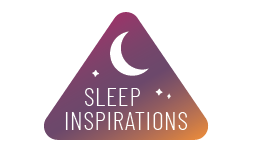There are a multitude of conditions that primarily involve sleep. To list all of these conditions on this website would be a challenging task that would potentially lead to unneeded confusion on the reader’s part.
In addition, many substances we ingest produce sleep difficulties or symptoms. A
well-known example is caffeine. Medications often affect sleep and their effects can be under appreciated.
Medications
Medications can produce symptoms that mimic those of sleep disorders. Many of these can cause daytime sleepiness as a side effect. Likewise, difficulty initiating and maintaining sleep is a common symptom produced by some medications while others can produce vivid dreaming or nightmares.There are certain medications that are associated with and apparently cause movements during sleep. It is often these movements that lead the patients to seek out medical help.Medications are a significant enough problem that we have created a separate entry on the site to review the issues. It lists the types and classes of medications and the sleep side effects most frequently experienced. For your specific medications, you’ll have to research them individually.
(tab to Medication Page-page in process ) Other Sleep Disorders
A national association of sleep physicians periodically releases a listing of all recognized disorders of sleep. In recent issues the separate diagnoses that can be established are greater than 70. Each has its own specific symptom profile and
clinical findings.These problems range from specific types of insomnias and circadian rhythm changes to multiple types of breathing disturbances and movement issues during sleep. The common feature of most of these disorders is the rarity of their occurrence.
The common disorders of sleep are covered elsewhere on these pages.
You should always seek professional help when concerned about your sleep health. If these pages do not give you any help understanding your situation, that is reason enough to seek professional help.
Do not be put off by the provider’s concern about the potential for obstructive apnea. The condition is extremely common and more so as we age. It has major long-term health consequences. In most cases, both the provider and your insurance company will want to be sure that you don’t have obstructive apnea as a cause of you symptoms.
Updated March 2024
